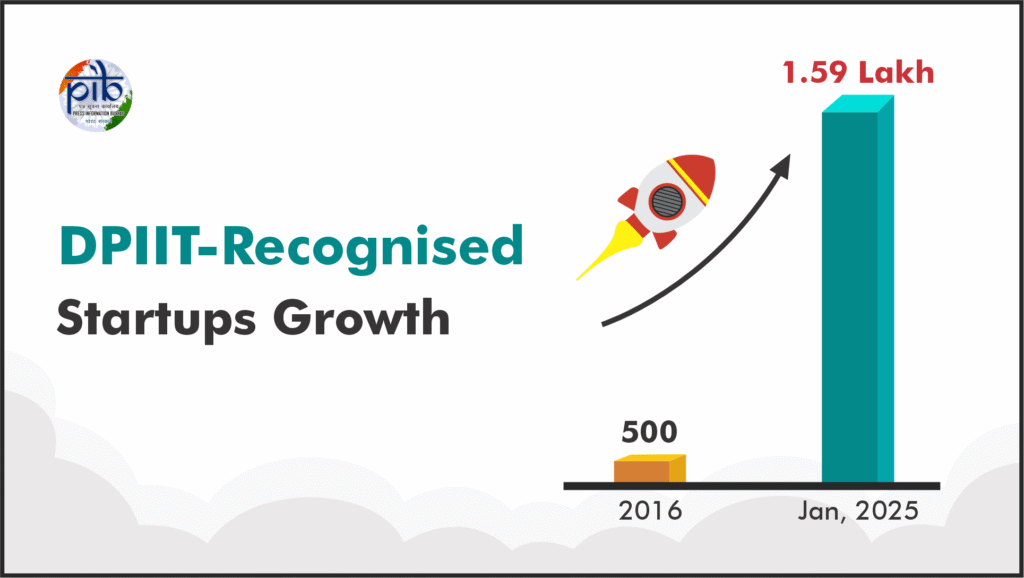India’s entrepreneurial ecosystem is undergoing a profound transformation, evolving into one of the most dynamic innovation landscapes in the world. With over 159,000 DPIIT-recognised startups across 763 districts, the country now ranks among the top three startup ecosystems globally. This surge is a testament to a vibrant support structure that includes government initiatives, funding frameworks, incubators, accelerators, and a growing investor network.
The Startup India initiative, launched in 2016, laid the groundwork by providing a policy-driven approach that offered tax exemptions, easy compliance, and access to capital. Notably, the Fund of Funds for Startups (FFS) and Startup India Seed Fund Scheme (SISFS) have played pivotal roles by enabling early-stage financing and reducing dependency on traditional funding routes.
India’s entrepreneurial ecosystem thrives not just in metro cities but also in Tier 2 and Tier 3 regions. Incubation hubs such as T-Hub (Hyderabad), i-Hub (Gujarat), and Kerala Startup Mission have catalysed localized innovation, making entrepreneurship more inclusive and regionally diversified. According to the World Economic Forum, Indian startups are gaining global relevance, particularly in climate resilience, fintech, and healthcare.
Tech innovation is also scaling new heights: India now has over 100 unicorns, up from just one in 2011. Indian startups are leading in fields such as AI, biotech, clean energy, space tech, and more. Firms operating in Fintech, Edtech, Healthtech, and E-commerce— such as Zomato, Nykaa, and Ola—are emerging as globally recognized success stories.
Approximately two-thirds of Indian companies aim to leverage diverse talent pools, prioritize skill-based recruitment, and make substantial investments in AI and digital technologies. Further, the rise in angel networks, venture capitalists, and global accelerators entering India demonstrates the maturity and scalability of this landscape. Additionally, growing digital infrastructure, smartphone penetration and government-backed digital services are enabling startups to reach underserved populations and scale operations with greater efficiency and impact.
India’s entrepreneurial ecosystem is no longer just growing— it is empowering. It is shaping a future where startups are engines of job creation, economic resilience, and technological leadership.

